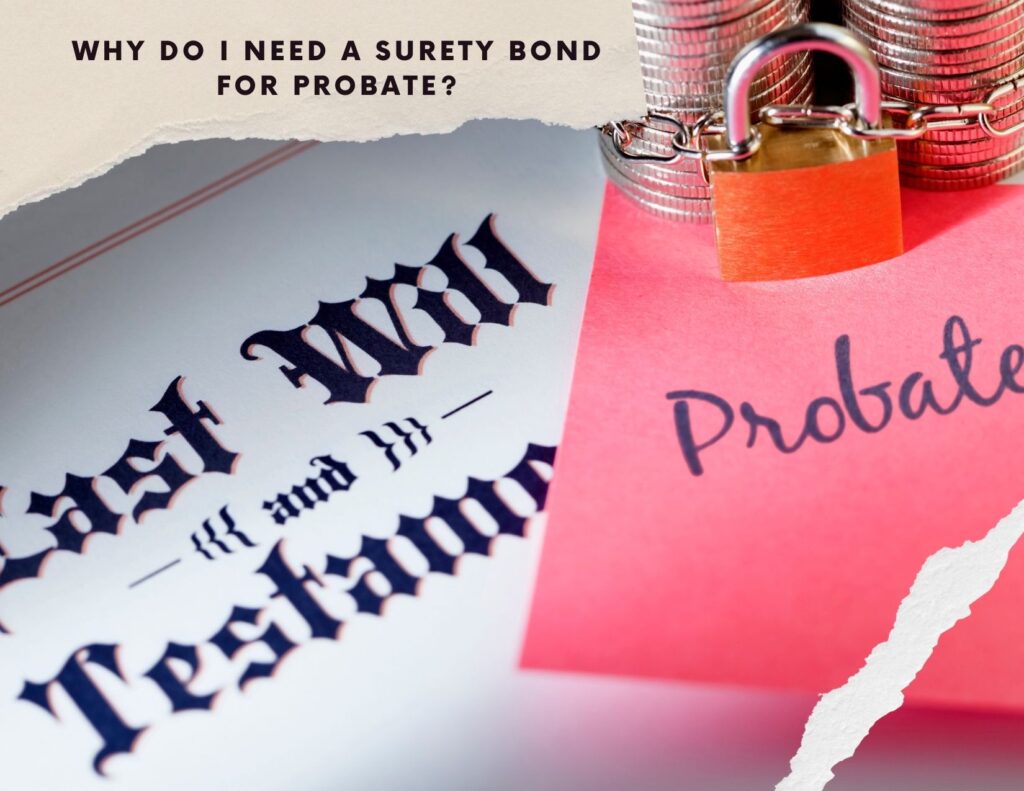When someone dies, their estate goes through a process known as probate. This is a legal process where the deceased’s property is inventoried and distributed to their heirs. For the probate process to happen, you will need to get a surety bond. In this blog post, we will discuss why you need a surety bond for probate and what it covers.
What is a Probate Bond?
A probate bond is a type of surety bond that is required to administer an estate. The purpose of the bond is to protect the estate’s beneficiaries from any fraudulent or dishonest actions by the executor or administrator. Probate bonds are also sometimes referred to as “fiduciary bonds.”
Why do I need a surety bond for probate?
The answer to this question depends on the state in which you are probating the estate. In some states, such as Florida, a surety bond is required to open up the probate process. The purpose of the bond is to protect the interests of creditors and beneficiaries of the estate. Without a surety bond, they would have no guarantee that the personal representative of the estate would properly handle the assets and debts of the deceased.
Types of probate bonds
Types of probate bonds that are available:
– A will bond is a type of probate bond that is required when someone dies with a will.
– An estate bond is a type of probate bond that is required when someone dies without a will.
– A conservator bond is a type of probate bond that is required when someone is appointed to manage the affairs of someone unable to do so.
– A guardian bond is a type of probate bond that is required when someone is appointed to care for the minor children of someone who has died.
– A administrator bond is a type of probate bond that is required when someone is appointed to manage the estate of someone who has died without a will.
– A trustee bond is a type of probate bond that is required when someone is appointed to manage the trust of someone who has died.
Who needs a probate bond?
If you have been appointed as an executor or administrator of an estate, it’s important to find out whether or not you will need to obtain a probate bond. You can contact the probate court in the county where the estate is being administered for more information.
If you do need to obtain a probate bond, there are a few things to keep in mind. First, the bond must be obtained from a surety company that is licensed to operate in your state. Second, you will likely be required to provide some personal financial information to the surety company to obtain the bond.
How does a probate bond work?
A bond is essentially a contract between the estate, the court, and the surety company. The surety company agrees to pay out any losses incurred by the estate due to mismanagement or fraud on the part of the executor or administrator up to the amount of the bond. The premium for the bond is typically paid by the estate.
How much does a probate bond cost?
The cost of a probate bond will depend on the value of the estate, as well as the state in which the estate is being administered. Probate bonds can range from a few hundred dollars to tens of thousands of dollars.
How do I get a probate bond?
There are a few steps you’ll need to take to get a probate bond. First, you’ll need to contact a surety company and request a quote. Once you’ve received a quote, you’ll need to complete an application and submit it to the surety company. Once your application has been approved, you’ll be able to purchase the bond. Finally, you’ll need to file the bond with the court.
What Information is Needed for a Probate Bond Application?
When applying for a probate bond, the surety company will require some basic information about you and your financial situation. This includes your name, address, phone number, and email address. You will also need to provide the name of the decedent, the county where the estate is being probated, and the case number. The surety company will also need information about your assets and liabilities, as well as your net worth. Finally, you will need to provide the name and contact information of the personal representative of the estate.
